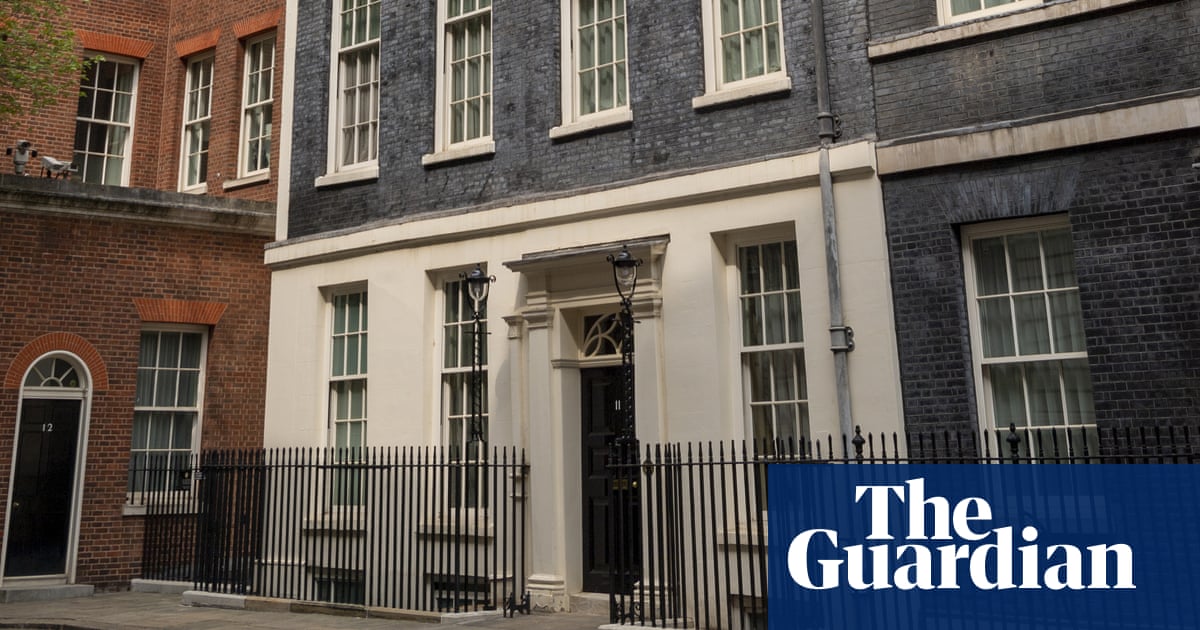
New questions have been raised for Boris Johnson over whether he misled his ethics adviser, after the Conservative party was fined £17,800 for serious donation reporting failures over the financing of the Downing Street flat redecoration.
After an eight-month investigation by the Electoral Commission, which regulates political parties’ income and spending, it found the Conservatives had not reported a donation of £52,801.
Labour has written to the parliamentary standards commissioner, Kathryn Stone, asking her to open an investigation into Johnson personally over the donations. Stone has sanction powers, including the ability to suspend an MP, which can lead to a recall petition and a potential byelection.
The money for the refurbishment came from the Tory peer David Brownlow, via his company Huntswood Associates Ltd. It was used to cover the costs of extensive and costly changes to the flat above No 11 where Johnson, his wife, Carrie, and their children live.
The commission’s report also suggests Johnson knew about the donation from Brownlow earlier than he had previously told Lord Geidt, the independent adviser on ministers’ interests, who conducted an investigation into the donations.
Geidt cleared Johnson of breaching the ministerial code in May 2021.
At the time, Geidt wrote that “for the credibility of this inquiry” he had checked the claim that Johnson knew nothing of the payments made for the flat by others. Geidt said the prime minister confirmed “he knew nothing about such payments until immediately prior to media reports in February 2021”.
Nevertheless the commission’s report makes clear that on 23 June 2020 Johnson offered Brownlow the role of chair of the Downing Street Trust, and on 29 November messaged Brownlow on WhatsApp asking him to authorise further refurbishment works on the flat.
Downing Street claimed there was no inconsistency between the Geidt and Electoral Commission reports, as Johnson only knew that Brownlow was organising donations to pay for the refurbishment works, not that Brownlow was himself “the underlying donor”.
Brownlow had “behaved in a confidential manner” after being appointed to head the blind trust in June 2020, Johnson’s spokesperson said.
“Despite the prime minister and Lord Brownlow having some limited contact during the following three months, the record shows no evidence that the prime minister had been informed by Lord Brownlow that he had personally settled the total cost,” he said.
The spokesperson declined to explain why some payments for the flat, including one of £59,000, were cited in the new report but had not seemingly been declared by Johnson, saying this was “in the most part a matter for” Conservative HQ.
He added: “The prime minister has acted in accordance with the rules at all times. He has made any requisite declarations.”
Saying Johnson had full confidence in Geidt, the spokesperson declined to say whether Geidt had seen the messages to Brownlow before writing his report.
In a new letter to Stone on Thursday, Angela Rayner wrote to “request an immediate investigation into the conduct of the prime minister in this scandal”.
The deputy Labour leader wrote: “It is clear that the prime minister misled the public, along with the independent adviser, when he told Lord Geidt during his investigation that he was unaware of the Lord Brownlow donations until February 2021.”
The commission found the Conservatives did declare a £15,000 donation from Brownlow’s firm for an event, the remaining funds were not reported to the commission and “incorrectly described in internal records”, according to a report released on Thursday.
The party had claimed the sum was the “repayment of a loan and not a donation”, and Johnson’s spokespeople insisted Johnson had settled the bill “personally”.
The commission believed, however, there were “reasonable grounds to suspect that an offence had been committed” and served legal notices on the party, Cabinet Office and Brownlow for evidence. It was handed invoices, bank statements, credit card bills, as well as letters, meeting minutes and WhatsApp messages.
The Conservatives’ treasurer, Alan Mabbutt, did not agree to an in-person interview.
While there is an annual £30,000 public grant available for works to Downing Street, Johnson wanted to spend more money on his flat in the weeks after his landslide general election win.
Brownlow was approached to chair the Downing Street Trust, a trust using anonymous donations. By June, when lockdown began to ease, the refurbishment was already under way.
The Cabinet Office agreed to pay the extra costs from three invoices totalling £52,801, then be reimbursed by the Conservatives on the basis a trust would then be set up.
Around a month later, on 6 August, the party reimbursed the government. In September, the supplier then invoiced the Cabinet Office for a further £12,967, which was forwarded first to Brownlow and then Conservative central headquarters (CCHQ).
The following month, Brownlow confirmed in a crucial paper trail email that he would be making a £15,000 donation and “£52,801.72 to cover payments the party has made on behalf of the soon to be formed ‘Downing Street Trust’ of which I am chairman”. On the same day, on 19 October, he also paid £12,967 to the supplier for the invoice received in September.
When a junior party staffer raised questions about the £52,801 which was treated as a “funds for reimbursement” rather than “donation”, they were told by a senior fundraising officer “don’t worry”.
Further payments made by Brownlow directly to the supplier included £33,484 on 18 December and £13,295 on 12 February 2021, bringing the total sum paid by him and his firm to £112,549 to the Conservatives and the supplier.
The following month, Johnson paid £112,549 to the supplier himself, so the supplier returned the funds it had got from Brownlow and the Cabinet Office.
How Johnson footed the bill remains unknown, as the commission said: “Any payments between the prime minister and the supplier are outside the scope of our investigation.”
A spokesperson for the Conservative party said they were considering appealing the ruling and dismissed the errors as a “technical breach of reporting requirements”.
They added: “We have been in constant contact with the Electoral Commission with regards to this matter and have sought their advice as to how the transaction should be reported since it was made.”
Source: Guardian







